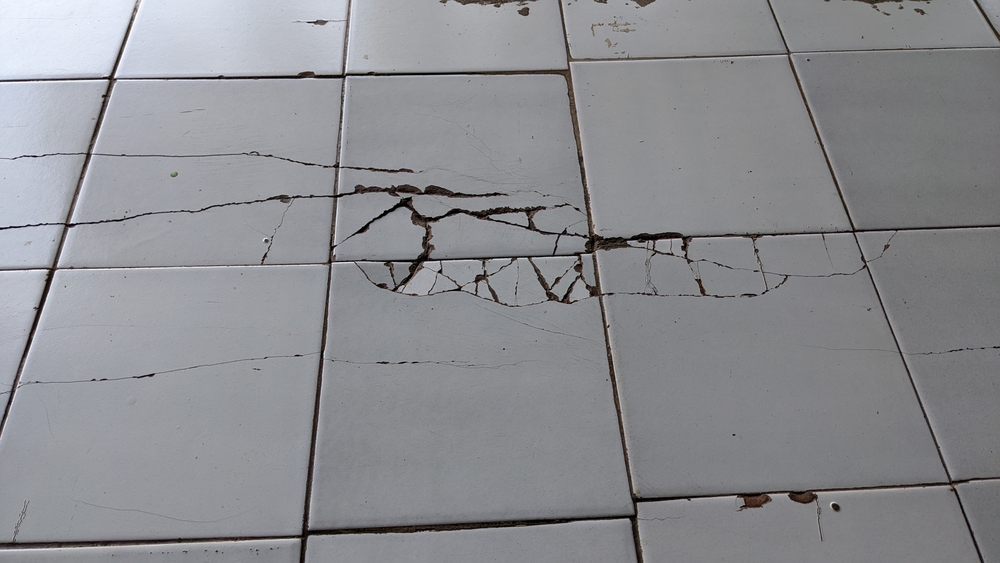Loose and uneven flooring is a leading cause of trip and fall accidents. Significantly, the injuries that arise from these types of accidents can be serious, debilitating, and life-changing. Whether the trip and fall occurred in a retail store, office building, restaurant, apartment complex, or other public place, a property owner may be held accountable for your injuries if they failed to ensure the flooring was properly maintained. By filing a personal injury lawsuit for a trip and fall caused by loose or uneven flooring, you may be entitled to compensation for your monetary damages and the pain and suffering you experienced due to your injuries.
How Are Trip and Falls Caused by Loose and Uneven Flooring?
There are many different types of flooring, including wood, bamboo, linoleum, vinyl, ceramic, stone, marble, and more. Importantly, every kind of flooring requires proper installation and adequate maintenance. Uneven, loose, or poorly maintained floorboards or tiles can move under a person’s foot and cause them to lose their balance, leading to devastating trip and fall injuries.
Trip and fall accidents due to loose or uneven flooring can be caused in connection with the following:
- Improper or worn grout
- Misleveled floorboards
- Missing tiles
- Structural issues with the building
- Failure to follow the manufacturer’s installation instructions
- Peeling vinyl
- Cracking linoleum
- Warped wood floorboards
- Thresholds between rooms that are not properly sized
Trip and fall accidents caused by loose or uneven flooring can result in a number of severe injuries that require extensive medical treatment and result in time lost from work. Injuries can include broken bones, soft tissue injuries, nerve damage, traumatic brain injury, paralysis, and others. Often, a trip and fall accident victim will undergo physical rehabilitation — and they might also need surgery. In a personal injury lawsuit, a trip and fall accident victim may be eligible to recover compensation from the negligent party for their unreimbursed medical expenses, lost wages, out-of-pocket costs, as well as for their physical pain and mental anguish.
Liability for Uneven Flooring Trip and Fall Accidents
To prevail in a trip and fall lawsuit for injuries caused by uneven flooring, a victim must show that someone else’s negligence caused the accident. Critically, property owners have a legal duty to ensure their premises are safe for those who lawfully enter. This means that they must take steps to ensure that the flooring is secure, well-maintained, and the area is properly illuminated.
If an owner knows, or should know, about a hazard on their property, they must make timely repairs. In the event repairs cannot be made right away, a property owner must sufficiently warn about the hazard by keeping visitors away from it — or placing a warning sign. Failure to make prompt repairs or issue a warning can result in liability for any injuries.
Apart from the property owner, other parties may be to blame for an uneven flooring accident, depending upon the facts and circumstances. For instance, a manufacturer might be responsible if defective flooring materials caused the injury. In addition, if the flooring was not properly installed, the company or contractor who performed the work might be to blame. Conducting a thorough investigation is necessary to ensure all liable parties are held accountable for any injuries sustained.
Contact an Experienced New York Personal Injury Attorney
If you were injured in a trip and fall accident caused by loose flooring on someone else’s property, you may be entitled to monetary recovery for your losses. An experienced personal injury attorney can fight for your rights and pursue the compensation you deserve. The Dearie Law Firm, P.C. has represented victims of trip and fall accidents for over three decades and works to secure the best possible outcome in each of their unique cases.
The Dearie Law Firm, P.C. has convenient office locations in Manhattan, the Bronx, and Brooklyn, as well as mobile locations serving Brooklyn, Queens, Manhattan, the Bronx, Staten Island, Westchester County, Rockland County, Nassau County, and Suffolk County. Contact us today for a consultation.

